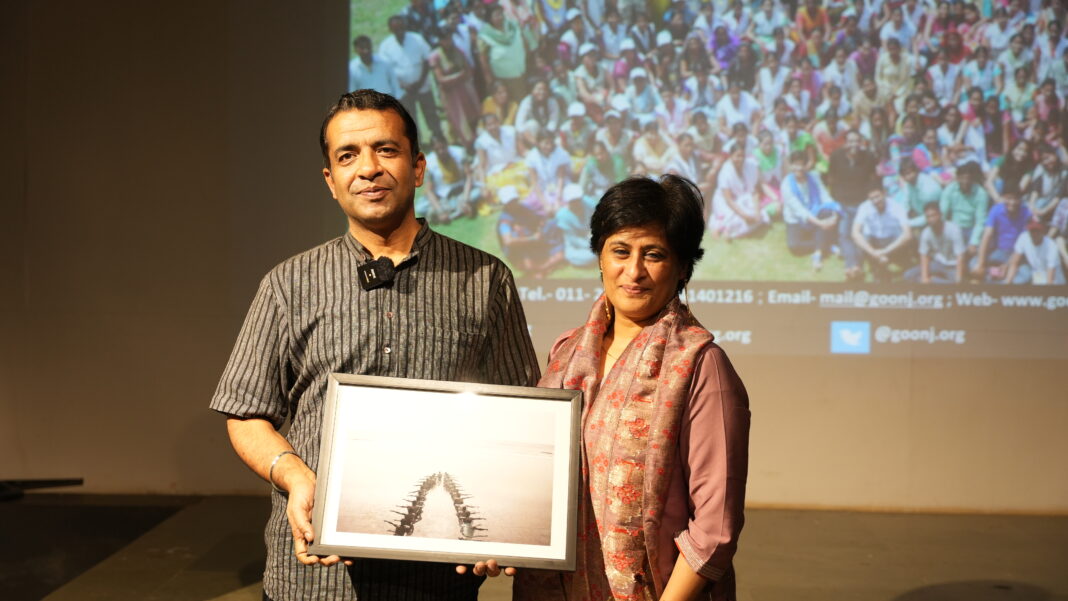Need to Recognise Lack of Access to Clothing in India as a Major Issue: Magsaysay Awardee
~ The lack of access to clothing in rural areas needs to be viewed as a major issue, rather than a non-issue, according to Goonj founder Anshu Gupta.
~ While giving away material, people need to be mindful of the needs of the recipients, rather than giving away discarded items.
Panaji, February 2024- Lack of access to clothing ought to be recognised as an issue, rather than a non-issue only to be addressed in times of natural or man-made disaster, according to Anshu Gupta, founder of Goonj, a pioneering agency dedicated to addressing clothing as a development need.
“There are several issues in the world that are taken for granted and relegated to the category of non-issues. When the basic needs of humankind arise in a discussion, clothing is one such issue that is viewed as a non-issue unless a disaster occurs — you need a flood to be flooded with clothes,” stated Gupta at the recent MOG Sundays talk held at the Museum of Goa, Pilerne.
Based out of Delhi, Goonj repurposes used discarded clothes into a variety of products, like bags, mats and most importantly, sanitary pads.
“Cotton cloth that makes its way to our collection centres is repurposed into sanitary pads to make up for the woeful inaccessibility of sanitary products in rural areas. This lack of access drives women to utilise grass, newspapers and even cow dung while menstruating. We learned of an unfortunate case where a woman used a saree blouse as a pad and died from metal poisoning because of the blouse’s hook,” said Gupta.
According to Gupta, who is a Magsaysay awardee, clothing is the easiest material to give to charity as in today’s fast-paced urban world, fast fashion trends dictate that there will always be something that is out of style, rendered unwearable and subsequently discarded.
“Goonj aims to remove some of the misconceptions surrounding the spirit of giving away clothes. When we give away used material, the most common word we use is donation. However, we truly regard it as discarded material and give it away because we do not need it. How, then, can we create a halo and say we want to donate something we already want to be rid of?” mused Gupta.
Gupta further stated that there is a need “to be grateful to the people using your secondary clothing material because they are the keepers of your emotions, your hard-earned money and time spent on purchasing the materials.”
Goonj follows a rigorous process of matching the materials that are collected at various centres, which also include utensils, tables, chairs and even doors and windows, to the needs of people.
“Even with all the good intentions we possess, the biggest problem with the donation mindset is that we give away what we have and not what people need. For example, a woman living in the mountains would require a pair of sports shoes rather than slippers or sandals. Hence, at Goonj, we ensure that the materials we give to the villagers are truly needed by them,” said Gupta.
Gupta stated that Goonj’s modus operandi follows the revival of the traditional partner economy with new currencies, one of which is urban underutilised material and the other is the wisdom and labour of the grassroots.
“Goonj will celebrate 25 years of operation this February 18. In a rough estimate of the data collated over the last eight years, we have channelised about 45 million kgs of various materials. There are about 1,600 people who work in our organisation across the country and there have been about 55,000 collection projects where water-related, sanitation and infrastructural work are taking place,” he said.




